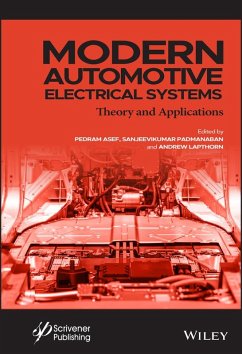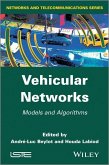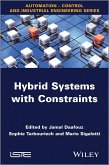MODERN AUTOMOTIVE ELECTRICAL SYSTEMS Presenting the concepts and advances of modern automotive electrical systems, this volume, written and edited by a global team of experts, also goes into the practical applications for the engineer, student, and other industry professionals. In recent decades, the rapid and mature development of electronics and electrical components and systems have inevitably been recognized in the automotive industry. This book serves engineers, scientists, students, and other industry professionals as a guide to learn fundamental and advanced concepts and technologies with modelling simulations and case studies. After reading this book, users will have understood the main electrical and electronic components used in electric vehicles (EVs). In this new volume are many fundamentals and advances of modern automotive electrical systems, such as advanced technologies in modern automotive electrical systems, electrical machines characterization and their drives technology for EVs, modeling and analysis of energy storage systems, applied artificial intelligence techniques for energy management systems, fault detection and isolation in electric powertrains, and thermal management for automotive electrical systems. Also covered are new innovations, such as the use of power electronics in low and high voltage circuits, electrified propulsion systems, energy storage systems, and intelligent energy management methods in EVs. Valuable as a learning tool for beginners in this area as well as a daily reference for engineers and scientists working in these areas, this is a must-have for any library.
Dieser Download kann aus rechtlichen Gründen nur mit Rechnungsadresse in A, B, BG, CY, CZ, D, DK, EW, E, FIN, F, GR, HR, H, IRL, I, LT, L, LR, M, NL, PL, P, R, S, SLO, SK ausgeliefert werden.









